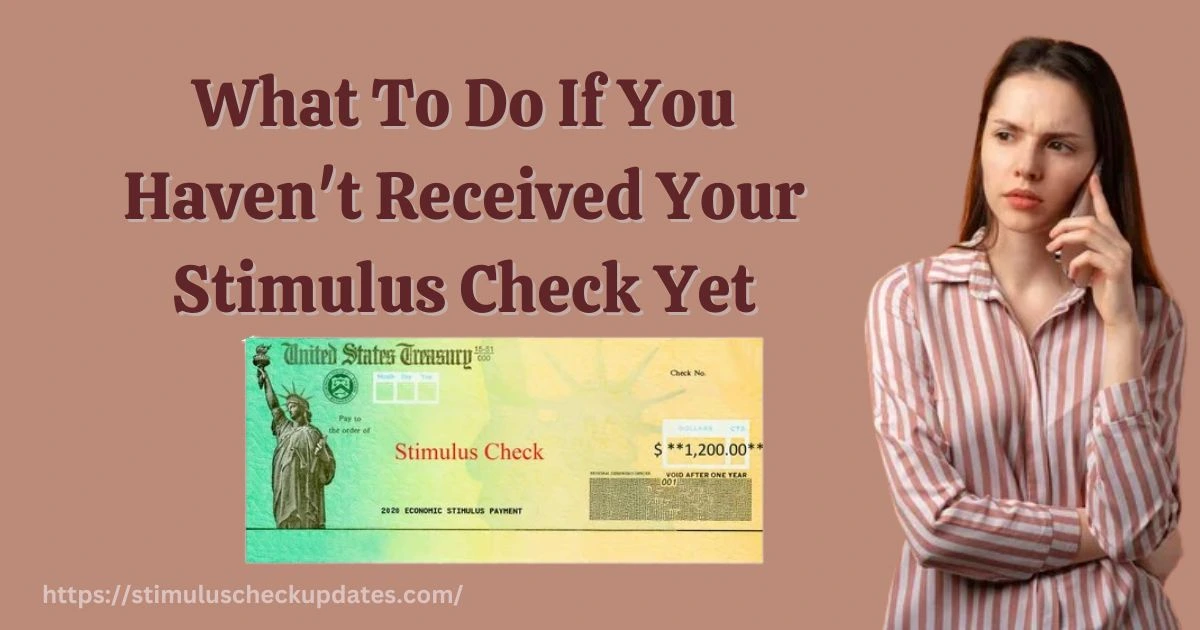Missing Stimulus Payment Issues
If you haven’t received your stimulus check yet, you’re not alone. This comprehensive guide will walk you through every step you need to take to track down your payment and resolve any issues that might be causing the delay. The Internal Revenue Service (IRS) has established specific procedures for handling missing payments, and we’ll cover all your options.
Overview of Stimulus Payment Programs
Before diving into solutions, let’s review the major stimulus programs:
- First Round (CARES Act): $1,200 per eligible adult
- Second Round (December 2020): $600 per eligible person
- Third Round (American Rescue Plan): $1,400 per eligible person
First Steps: Verify Your Eligibility
Income Requirements
To receive a stimulus payment, your income must fall within these limits:
- Single filers: Up to $75,000
- Head of household: Up to $112,500
- Married filing jointly: Up to $150,000
Other Eligibility Factors
Check these crucial eligibility requirements:
- Valid Social Security number
- U.S. citizen or resident alien
- Not claimed as a dependent
- Filed required tax returns
How to Track Your Stimulus Payment
Using the Get My Payment Tool
The IRS provides the Get My Payment tool to track your stimulus check status. Here’s how to use it:
- Visit the IRS website
- Enter your:
- Social Security number
- Date of birth
- Street address
- ZIP code
Understanding Payment Status Messages
Common status messages include:
- Payment Status Not Available
- Need More Information
- Payment Scheduled
- Payment Processed
Common Reasons for Delayed Stimulus Checks
Address Changes
If you’ve moved recently:
- Update your address with USPS
- File Form 8822 with the IRS
- Submit address change online through IRS portal
Banking Information Issues
Check these potential banking problems:
- Closed bank account
- Incorrect account numbers
- Bank rejection of deposit
- Temporary bank holds
Tax Return Processing Delays
Tax return issues that may affect your payment:
- Pending tax return processing
- Math errors on returns
- Identity verification needed
- Missing information
Steps to Take for Missing Payments
Contact the IRS
Ways to reach the IRS about your stimulus payment:
- Call the Economic Impact Payment hotline
- Schedule an appointment at a local office
- Use the Taxpayer Advocate Service
File a Payment Trace
When to request a payment trace:
- 5 days since direct deposit scheduled
- 4 weeks since mailed to standard address
- 6 weeks since mailed to forwarding address
- 9 weeks since mailed to foreign address
Recovery Rebate Credit
How to claim missing payments through Recovery Rebate Credit:
- Calculate missing stimulus amounts
- Complete tax return forms
- Include credit calculation
- Submit documentation
Special Situations and Solutions
Non-Filers
Steps for those who don’t typically file taxes:
- Use Non-Filers tool when available
- File simplified return
- Submit basic information to IRS
Recently Deceased Recipients
Handling payments for deceased individuals:
- Return payments issued after death
- Keep payments issued before death
- Contact IRS for clarification
Mixed Immigration Status Families
Guidelines for families with mixed status:
- Citizen spouse eligibility
- Dependent children eligibility
- ITIN holder considerations
What You Should Know About Emergency Stimulus Payments
Protecting Yourself from Scams
Common Stimulus Check Scams
Watch out for these fraud attempts:
- Fake IRS phone calls
- Phishing emails
- Text message scams
- Social media schemes
How to Report Stimulus Fraud
Steps to report suspicious activity:
- Contact Treasury Inspector General
- File FTC complaint
- Report to FBI’s Internet Crime Complaint Center
Alternative Financial Assistance
Government Programs
Other available assistance:
- Unemployment benefits
- SNAP benefits
- Rental assistance
- Utility payment help
State and Local Resources
Check these local options:
- State assistance programs
- County relief funds
- Municipal support services
- Community organizations
Preparing for Future Payments
Keep Information Updated
Maintain current:
- Mailing address
- Bank account details
- Tax filing status
- Contact information
Document Organization
Create a system for:
- Tax returns
- IRS correspondence
- Payment records
- Identity documents
FAQs
Comprehensive Guide to Missing Stimulus Payments
Q: How long should I wait before taking action? A: Wait at least 5 business days after the scheduled direct deposit date or 4 weeks after a mailed check before initiating a trace.
Q: What if my payment was less than expected? A: Compare your payment against eligibility criteria and use the Recovery Rebate Credit if necessary.
Q: Can I still claim previous stimulus payments? A: Yes, through the Recovery Rebate Credit on your tax return.
Q: What information do I need when contacting the IRS about my missing stimulus check? A: Have ready:
- Social Security number or Tax ID
- Date of birth
- Mailing address
- Previous tax return information
- Notice 1444 (if received)
- Banking information (if applicable)
Q: How do I know if I’m eligible for a stimulus payment? A: Eligibility depends on:
- Income limits
- Filing status
- Citizenship status
- Dependency status
- Valid Social Security number
Q: What if my stimulus check was stolen? A: Take these steps:
- Report theft to local police
- Contact the IRS immediately
- Request a payment trace
- File Form 3911
- Monitor your credit reports
Q: Can I receive my stimulus payment on a prepaid card? A: Yes, the IRS may send your payment via:
- Direct Express card
- Economic Impact Payment card
- Your existing government benefit card
Q: What happens if I changed banks since my last tax return? A: You should:
- Wait to see if the payment is returned to IRS
- Update banking information through IRS portal
- Request payment trace if necessary
- Consider Recovery Rebate Credit option
Q: Will calling the IRS speed up my payment? A: Generally no, but calling can help if:
- Payment was returned to IRS
- Address needs verification
- Identity verification is required
- Payment trace is needed
Q: What if I’m on Social Security or other federal benefits? A: Federal benefit recipients should:
- Check Direct Express card
- Verify payment status online
- Contact benefit agency first
- Then contact IRS if needed
Q: Can I get my stimulus check expedited? A: The IRS doesn’t typically expedite payments except for:
- Hardship situations
- Bank errors
- Theft cases
- Natural disasters
Q: What if I filed my taxes late? A: Late tax filing effects:
- May delay stimulus payment
- Might need to claim via Recovery Rebate Credit
- Could require additional verification
- May need to contact IRS directly
Q: How does married filing jointly affect my stimulus payment? A: For joint filers:
- Both spouses must have valid SSNs
- Combined income determines eligibility
- Payment issued as single amount
- Both must verify identity if required
Q: What if I’m claimed as a dependent but now file independently? A: Steps to take:
- File current year taxes independently
- Claim Recovery Rebate Credit
- Provide documentation of status change
- Contact IRS for verification
Q: Will getting a stimulus check affect my other benefits? A: Stimulus payments:
- Don’t count as income for federal benefits
- Won’t affect program eligibility
- Don’t count for Medicaid/CHIP
- Don’t affect SNAP benefits
Q: How do I handle stimulus checks for deceased family members? A: Guidelines for deceased recipients:
- Return payments issued after death
- Keep payments issued before death
- Mark envelope “VOID” if returning
- Include explanation letter
Q: What if I have a new dependent since my last tax return? A: For new dependents:
- File current year taxes
- Update dependent information
- Claim additional credits
- Provide supporting documentation
Q: Can I get my payment in a different form than originally issued? A: Generally no, but exceptions include:
- Lost or stolen checks
- Expired checks
- Wrong account deposits
- Returned payments
Q: What happens if I have an outstanding debt? A: Stimulus checks are protected from:
- Most private debts
- State debts
- Federal non-tax debts But may be offset for:
- Child support
- Federal tax debt
Q: How long does a payment trace take? A: Typical timeframes:
- 6 weeks for direct deposit traces
- 8 weeks for mailed check traces
- Longer for international addresses
- May vary during peak periods
Conclusion
If you haven’t received your stimulus check, following these steps will help resolve the issue. Remember to:
- Verify eligibility
- Check payment status
- Update information
- Contact IRS if necessary
- Consider Recovery Rebate Credit
- Protect against fraud
- Document all communications
Keep all records of your efforts to obtain your payment, and don’t hesitate to seek professional assistance if needed.
visit: stimuluscheckupdates.com

